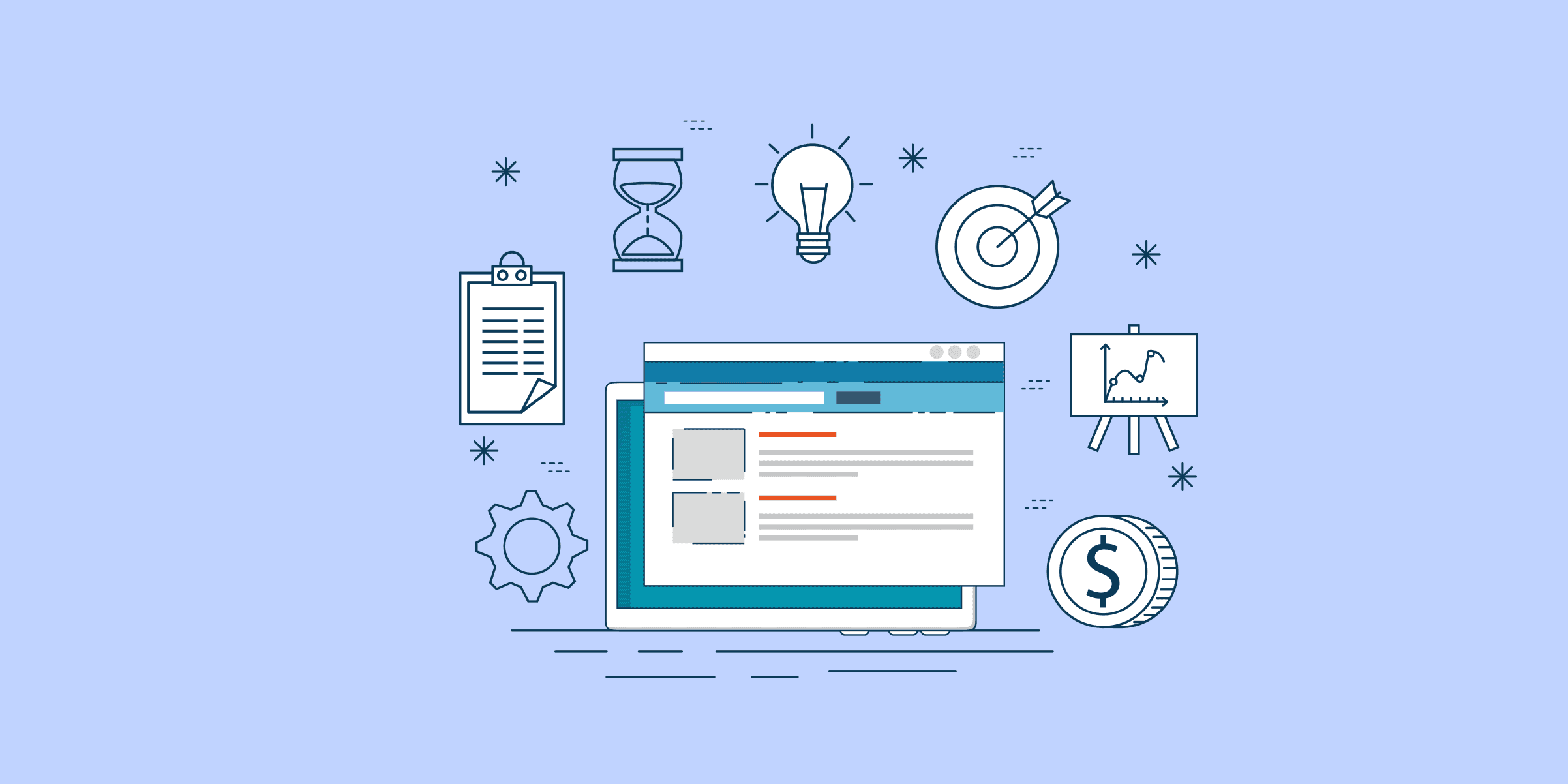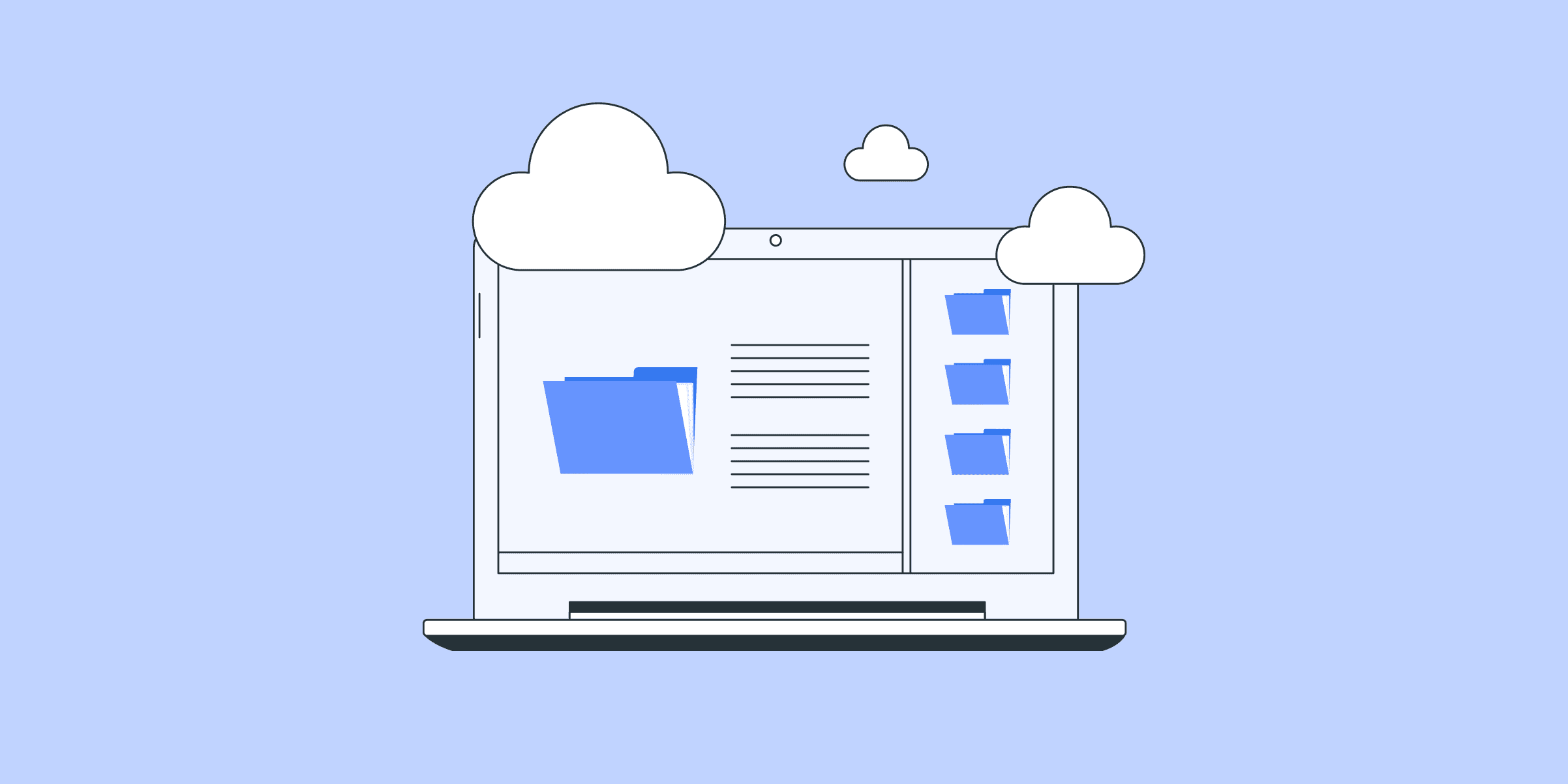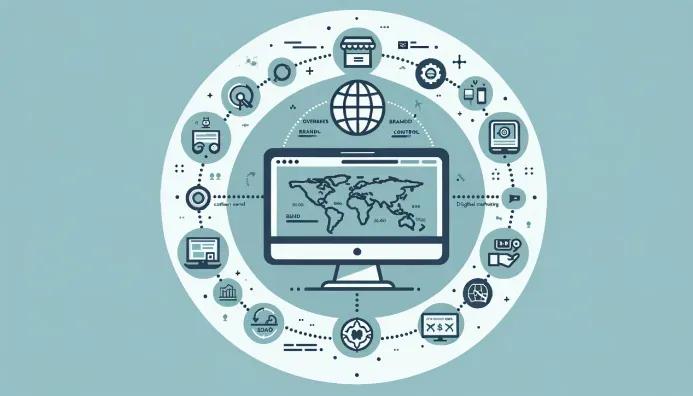
Where Can I Find a Reliable Proxy? Your Guide to Secure Web Browsing
Where Can I Get a Proxy? A Comprehensive GuideProxy servers have become increasingly popular among internet users for various reasons. Whether you want to access restricted content, protect your online privacy, or enhance your browsing speed, a proxy server can be a valuable tool. However, if you're new to the world of proxies, you might be wondering where to get one. In this blog post, we'll explore the different options available for obtaining a proxy and help you decide which one suits your needs best.1. Free Proxy Servers:One option to consider is using a free proxy server. These servers are accessible to anyone and can be found through a quick internet search. While they may seem appealing due to their cost (or lack thereof), they come with their own set of drawbacks. Free proxy servers often have limited bandwidth, slow connection speeds, and may be unreliable or insecure. Additionally, they are more likely to be blocked by websites that detect and blacklist common proxy server IP addresses.2. Public Proxy Lists:Another way to find a proxy is by using public proxy lists. Numerous websites compile and update lists of available proxy servers. These lists can be sorted by country, protocol, anonymity level, and other parameters. While this option provides a wider selection of proxies than free servers, you still run the risk of encountering slow or unreliable connections. Additionally, the process of finding an up-to-date and working proxy can be time-consuming.3. Proxy Service Providers:For a more reliable and secure option, consider using a proxy service provider. These companies offer dedicated proxy servers that are reliable and have higher connection speeds compared to free servers or public lists. Proxy service providers often offer a range of options, including dedicated or shared proxies, rotating IP addresses, and various locations worldwide. While these services come at a cost, the advantages they provide, such as improved performance and security, make them worth considering.4. Data Center Proxies:Data center proxies, also known as private proxies, are another option to explore. These proxies are not affiliated with an internet service provider (ISP) and are usually owned and operated by a third-party company. Data center proxies are highly anonymous and offer faster connection speeds than other types of proxies. They are commonly used for web scraping, SEO monitoring, and other data-intensive tasks. To obtain data center proxies, you can look for companies that specialize in providing this service.5. Residential Proxies:If your needs require a more advanced solution, residential proxies are worth considering. These proxies rely on real IP addresses provided by internet service providers. Residential proxies offer a high level of anonymity as they appear as regular residential internet users. They are ideal for tasks that require a higher level of security or bypassing strict restrictions. While residential proxies can be more expensive, they provide the most genuine browsing experience.In conclusion, there are several options available to obtain a proxy server. Free proxy servers and public lists may be suitable for basic needs, but they come with limitations and drawbacks. Proxy service providers offer a more reliable and secure solution, with a range of options to choose from. Data center proxies are ideal for data-intensive tasks, while residential proxies provide the highest level of anonymity. Consider your specific requirements and budget when deciding which option to pursue. With the right proxy server, you can enhance your browsing experience, protect your online privacy, and access restricted content.

Where Can I Find and Buy Socks5 Proxy Servers?
A Comprehensive GuideWelcome to our blog post on finding the best places to buy Socks5 proxies! In today's digital age, online privacy and security have become essential concerns for individuals and businesses alike. Socks5 proxies offer a convenient and reliable solution to enhance your online anonymity and protect your sensitive data. In this article, we will explore different options for purchasing Socks5 proxies and provide tips for optimizing your search through SEO techniques.1: What is a Socks5 Proxy?Before diving into where to buy Socks5 proxies, let's first understand what they are. A Socks5 proxy acts as an intermediary server that routes your internet traffic through a different IP address. It not only masks your real IP but also adds an extra layer of encryption, enhancing your online privacy and security.Section 2: Benefits of Using Socks5 ProxiesSocks5 proxies offer several advantages, such as:1. Anonymity: By utilizing a Socks5 proxy, your online activities and identity remain hidden, helping to protect against surveillance and tracking.2. Bypassing Restrictions: Socks5 proxies allow you to access geo-restricted content, bypass firewalls, and overcome IP-based limitations.3. Increased Security: With encryption capabilities, Socks5 proxies safeguard your data from potential threats, such as hackers and identity theft.4. Faster Speeds: Socks5 proxies offer faster connection speeds compared to other proxy types, making them ideal for streaming and downloading activities.Section 3: Where to Buy Socks5 Proxies: A Comprehensive GuideHere are some places to consider when looking to purchase Socks5 proxies:a. Online Proxy Providers: Numerous online platforms specialize in selling different types of proxies, including Socks5. Examples include ProxyRack, Storm Proxies, and Proxy-Seller.b. Proxy Marketplaces: Marketplaces like Proxy-N, HighProxies, and BuyProxies.org provide a wide range of proxy options, allowing you to find reliable Socks5 proxies.c. Social Media Platforms: Many proxy providers promote their services on social media platforms like Twitter and Facebook. Searching using relevant hashtags (#socks5proxy) can help you discover reputable sellers.d. Forums and Communities: Online communities like Reddit, BlackHatWorld, and Proxy Forums discuss and review various proxy providers, making them excellent resources for finding trustworthy Socks5 proxies.Section 4: SEO Techniques to Optimize Your SearchTo enhance your search for Socks5 proxies, consider employing the following SEO techniques:a. Keyword Research: Use tools like Google Keyword Planner to identify popular search terms related to Socks5 proxies. Optimize your content with relevant keywords to increase visibility in search engine results.b. Meta Tags Optimization: Craft compelling meta titles and descriptions to attract organic traffic and improve click-through rates.c. High-Quality Content Creation: Create informative and engaging blog posts, articles, or guides that provide value to your readers. Search engines prioritize high-quality content.d. Link Building Strategies: Build backlinks from reputable websites by guest posting, collaborating with influencers, or leaving meaningful comments on relevant blogs. Backlinks help improve your website's authority and visibility in search results.When it comes to buying Socks5 proxies, you have numerous options available across various platforms. Online proxy providers, marketplace websites, social media platforms, and online communities are excellent starting points for your search. By implementing SEO techniques, you can optimize your search efforts and find the most reliable and secure Socks5 proxies that suit your needs.Remember, always prioritize your online security and privacy when using proxy services. Do thorough research, read reviews, and choose reputable providers to ensure a safe and seamless browsing experience. Happy proxy hunting!
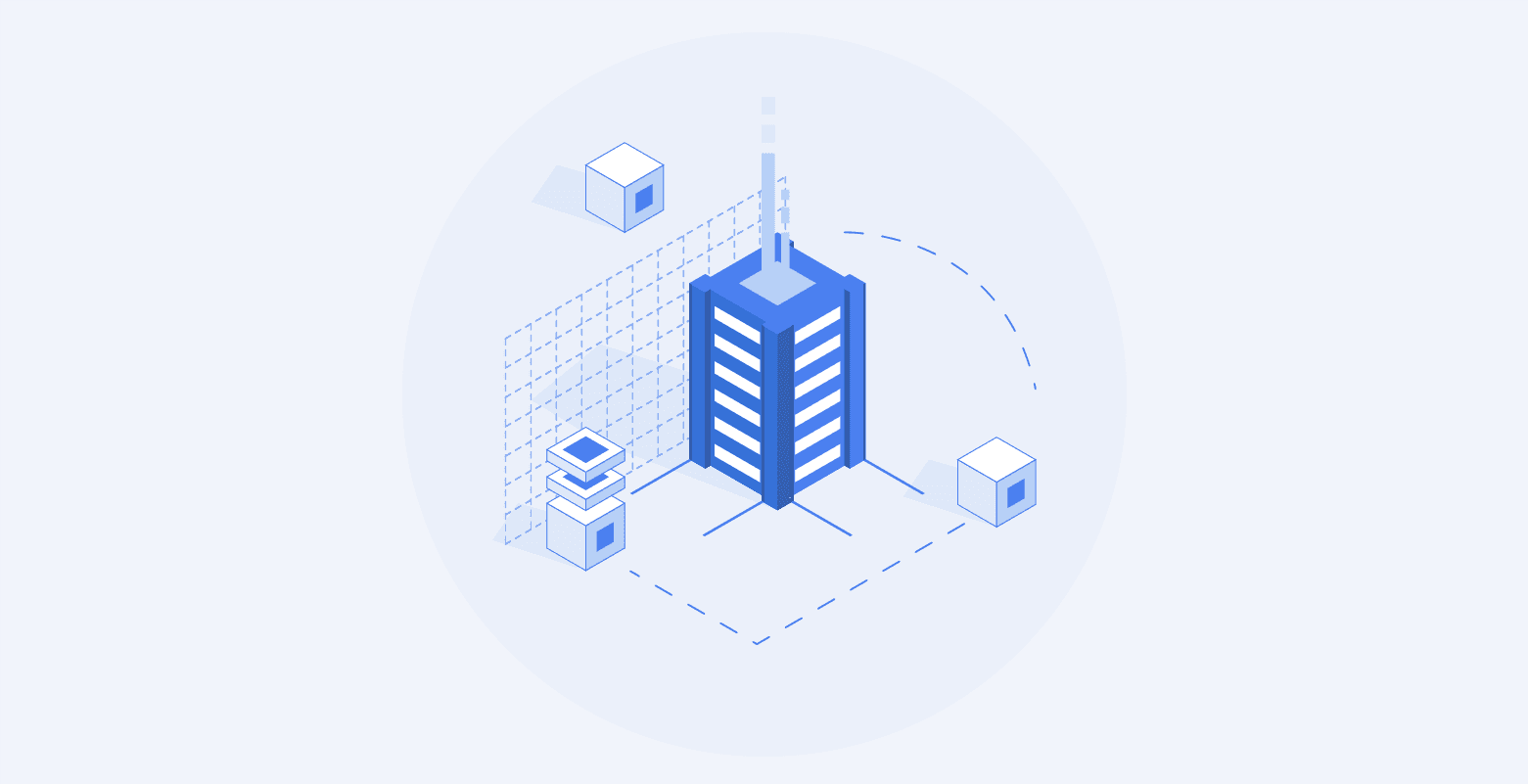
Where to Buy Proxies with Specific Subnets: A Comprehensive Guide
Title: Buy Proxies with Specific Subnets for Enhanced Online SecurityIntroduction:In today's digital age, online security has become a paramount concern for individuals and businesses alike. One effective way to safeguard your online activities is by using proxies with specific subnets. These proxies provide a reliable and secure way to browse the internet while maintaining anonymity and protecting your sensitive information. In this blog post, we will explore the benefits of buying proxies with specific subnets and how they can enhance your online security.1. Understanding Proxies with Specific Subnets:Proxies act as intermediaries between your device and the internet. They serve as a buffer, hiding your IP address and routing your requests through their own servers. Proxies with specific subnets provide an added layer of security by utilizing subnets that are exclusive to the proxy provider. This ensures that your online activities remain separate from others, minimizing the risk of potential breaches or data leaks.2. Enhanced Anonymity:One of the primary reasons to buy proxies with specific subnets is to maintain anonymity while browsing the internet. By using a proxy with a dedicated subnet, your online activities are further obfuscated, making it difficult for anyone to trace your digital footprint. This is especially beneficial if you engage in sensitive tasks such as online banking, e-commerce, or accessing company databases.3. Protection against IP Blocking and Geo-Restrictions:Websites and online platforms often implement IP blocking or geo-restrictions to limit access to certain regions or prevent suspicious activities. With proxies and specific subnets, you can bypass these restrictions by appearing as if you are accessing the internet from a different location. This feature is particularly useful for businesses operating in multiple regions, as it allows them to analyze competition, access localized content, and ensure consistent customer experience across various geographic locations.4. Preventing Data Harvesting and Online Tracking:The internet is filled with trackers and data harvesters that continuously monitor your online activities for various purposes, including targeted advertisements and identity theft. When you buy proxies with specific subnets, your IP address is masked, making it virtually impossible for these entities to track or harvest your data. This ensures that your personal information remains private and secure, minimizing the risk of falling victim to identity theft or other malicious activities.5. Improved Performance and Speed:Proxies with specific subnets often offer better performance and faster browsing speeds compared to free or shared proxies. Since these proxies have dedicated resources and are less likely to be overloaded, they can handle higher volumes of traffic efficiently, resulting in a smoother browsing experience. This is crucial for businesses that rely on web scraping, data extraction, or other data-intensive tasks that require uninterrupted and fast connections.Conclusion:In conclusion, buying proxies with specific subnets is a wise investment for individuals and businesses who prioritize online security. These proxies provide enhanced anonymity, protection against IP blocking, and prevent data harvesting and online tracking. Additionally, they offer improved performance and browsing speeds for reliable and efficient online activities. By leveraging proxies with specific subnets, you can browse the internet with peace of mind, knowing that your online security is well-protected.

Where to Find Reliable Socks5 Proxies: A Comprehensive Guide
If you're looking to buy socks5 proxy, there are several factors to consider when choosing the right provider. In this blog post, we'll discuss what sock5 proxy is, why you might need it, and where to buy it.What is socks5 proxy?A socks5 proxy is a type of proxy server that allows you to connect to the internet anonymously. When you use a socks5 proxy, your IP address is hidden, and all of your internet traffic is routed through the proxy server. This can be useful for a variety of reasons, including:1. Bypassing internet censorship and geo-restrictions: With a socks5 proxy, you can access websites and services that may be blocked in your country or region.2. Protecting your privacy: A socks5 proxy can help keep your online activity private and prevent your ISP from tracking your internet usage.3. Improving your online security: A socks5 proxy can provide an extra layer of security by masking your IP address and encrypting your internet traffic.Why buy socks5 proxy?There are several reasons why you might want to buy socks5 proxy, including:1. Enhanced online privacy and security: A socks5 proxy can help mask your IP address and encrypt your internet traffic, providing an extra layer of privacy and security.2. Access to geo-restricted content: With a socks5 proxy, you can access websites and services that may be blocked in your country or region.3. Faster internet speeds: A socks5 proxy can help improve your internet speeds by caching frequently accessed websites and services.Where to buy socks5 proxy?When it comes to buying socks5 proxy, there are several options to choose from, including:1. Private proxy providers: There are many private proxy providers that offer socks5 proxy services, including ProxyRack, MyPrivateProxy, and Proxy-N.2. Free proxy providers: There are also many free proxy providers that offer socks5 proxy services, although these may not be as reliable or secure as paid providers.3. Online marketplaces: You can also buy socks5 proxy from online marketplaces like eBay or Amazon, although it's important to do your research and only buy from reputable sellers.When choosing a socks5 proxy provider, there are several factors to consider, including pricing, server locations, and customer support. It's also important to choose a provider that offers secure and reliable proxy servers to protect your online privacy and security.In conclusion, buying socks5 proxy can be a great way to enhance your online privacy and security, access geo-restricted content, and improve your internet speeds. Whether you choose a private proxy provider, a free proxy provider, or an online marketplace, it's important to do your research and choose a provider that meets your specific needs and requirements.
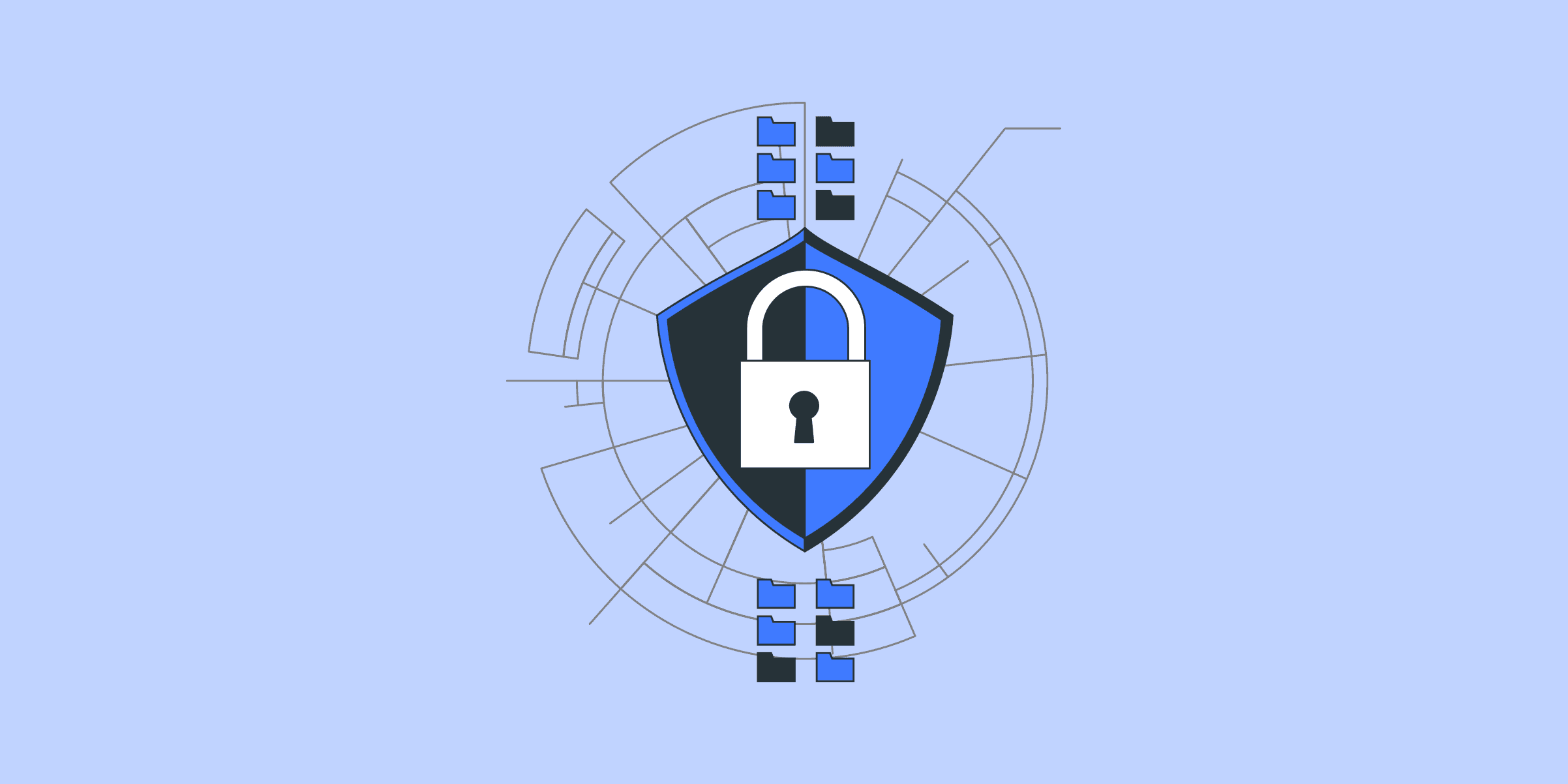
Where to Find the Best Proxy Server: Your Guide to Proxy Server Options
Title: Where to Get a Proxy Server: The Ultimate GuideIntroduction:Are you in search of a reliable proxy server but don't know where to find one? Look no further! In this ultimate guide, we will explore different platforms and methods to get your hands on a trusted proxy server. Whether you need it for data scraping, security purposes, or simply to access geo-restricted content, we've got you covered!1. Dedicated Proxy Server Providers:One of the easiest and most popular ways to obtain a proxy server is through dedicated proxy server providers. These companies specialize in offering a wide range of proxy servers to cater to your specific needs. Some renowned providers include ProxyRack, Luminati, and Storm Proxies. These providers offer both residential and datacenter proxies, ensuring you have a variety of options to choose from.2. Proxy Marketplaces:Proxy marketplaces serve as a platform connecting proxy sellers and buyers. These marketplaces offer a wide selection of proxy servers, including residential, datacenter, and mobile proxies. Popular proxy marketplaces include ProxyCue, Proxy-Cheap, and Proxy-Seller. These platforms often provide detailed information about each proxy, such as location, speed, and type, allowing you to make an informed decision.3. Trusted Proxy Forums:Forums dedicated to proxy discussions can be a goldmine for finding reliable proxy servers. Websites like BlackHatWorld and Warrior Forum have active communities where users share and discuss various proxy sources. Here, you can find recommendations, reviews, and even discounts offered by proxy providers. Engaging with these forums can help you narrow down your search and find reputable proxy servers.4. Social Media Platforms:Believe it or not, social media platforms like Twitter and Reddit can be excellent sources for finding proxy servers. Many proxy providers promote their services on these platforms and engage with potential clients directly. By following proxy-related hashtags or joining relevant communities, you can discover trustworthy proxy servers and even grab exclusive deals or discounts.5. Proxy Server Aggregators:Proxy server aggregators consolidate proxy servers from various sources, allowing you to compare and choose the most suitable one. ProxyScrape, ProxyMesh, and GatherProxy are popular aggregators that provide a comprehensive list of available proxy servers along with their specifications. These platforms save you time by gathering proxies from different providers in one place.Conclusion:Obtaining a reliable proxy server is crucial in today's digital landscape. Whether you need it for web scraping, bypassing geo-restrictions, or ensuring online security, there are various avenues to explore. Dedicated proxy server providers, proxy marketplaces, trusted forums, social media platforms, and proxy server aggregators are valuable resources to find the perfect proxy server for your needs. Remember to conduct thorough research, compare options, and read reviews to ensure you select a trusted and reliable proxy server. Happy proxy hunting!

Where to Get Proxies: A Comprehensive Guide
Where to Get Proxies: A Comprehensive Guide for SEOIntroductionIn the world of Search Engine Optimization (SEO), proxies play a vital role. They allow SEO specialists to collect valuable data, perform keyword research, and monitor their rankings without the fear of getting blocked or flagged by search engines. If you're wondering where to get proxies, this comprehensive guide is here to help you.1. Proxy TypesThere are different types of proxies available, each with its own specific use case. The most common proxy types include:a. Residential Proxies: These proxies use IP addresses assigned to homeowners by Internet Service Providers (ISPs). They are highly secure and offer a high degree of anonymity.b. Datacenter Proxies: These proxies are created in data centers and are typically faster than residential proxies. However, they are less secure and may be easily detected by some websites.c. Mobile Proxies: These proxies use IP addresses assigned to mobile devices, making them ideal for mobile app scraping or social media automation.2. Proxy ProvidersNow that you know about the different types of proxies, let's explore some popular proxy providers:a. Luminati: Luminati is one of the leading proxy providers, offering a vast network of residential, datacenter, and mobile proxies.b. Smartproxy: Smartproxy provides datacenter and residential proxies with a user-friendly dashboard and affordable pricing plans.c. Oxylabs: Oxylabs offers residential, datacenter, and mobile proxies with advanced features like session control and geolocation targeting.d. ProxyRack: ProxyRack specializes in providing rotating proxies, allowing you to switch IP addresses automatically for different SEO tasks.3. Free vs. Paid ProxiesWhile free proxies may sound tempting, they often come with limitations, such as limited bandwidth, slower speeds, and unreliable connections. Paid proxies, on the other hand, offer better performance, stability, and customer support. Investing in paid proxies is crucial for serious SEO professionals.4. Proxy SetupAfter choosing a proxy provider, follow these steps to set up your proxies:a. Purchase a proxy plan from your chosen provider.b. Obtain the necessary credentials, including the IP addresses, ports, and authentication details.c. Configure your SEO tools or scripts to use the proxy.d. Test the proxy connection to ensure everything is working correctly.5. Best PracticesTo make the most out of your proxies, consider these best practices:a. Rotate IP addresses: Regularly rotating your IP addresses helps to avoid detection and maintain a good reputation online.b. Use geolocation targeting: Utilize proxies with geolocation targeting to gather location-specific data and insights.c. Monitor proxy performance: Keep track of your proxy performance, including response times and success rates, to identify and resolve any issues.d. Respect website policies: Always adhere to website terms of service and guidelines when using proxies.ConclusionProxies are essential tools for SEO professionals, enabling them to gather data and optimize their websites without being blocked or flagged. When looking for proxies, it's crucial to consider the type of proxies you need, reputable proxy providers, and the best practices for proxy usage. By following this comprehensive guide, you'll be well on your way to finding and utilizing proxies for your SEO success.

Which customer segments will choose to use Overseas Residential proxies?
In today's globalized Internet age, Overseas Residential proxy has become the tool of choice for many users and businesses. Overseas Residential proxies provide users with easy access to the global Internet and offer many unique advantages. In this article, we will introduce which customer groups would choose to use an overseas residential proxy and discuss their needs and application scenarios. 1. Cross-border e-commerce enterprises Cross-border e-commerce enterprises are one of the main users of overseas residential proxies. Since e-commerce business involves markets in different countries and regions, cross-border e-commerce companies need to simulate user visits in different geographic locations to test and optimize their websites and products. Overseas Residential proxy provides multiple overseas IP addresses, which enables enterprises to easily simulate the visit behavior of global users and understand the needs and preferences of each market, so as to optimize their website content, positioning and sales strategies. 2.Overseas Market Expansion Enterprises Enterprises face many challenges when expanding in overseas markets, including understanding local market demand, competitor analysis and establishing appropriate marketing strategies. Overseas Residential proxy provides companies with the ability to simulate overseas users, allowing them to gain an in-depth understanding of their target market and adjust and optimize according to actual needs. Through the use of overseas residential agencies, companies can obtain data on keyword rankings, search habits and user feedback related to the target market, thus providing strong support for market expansion. 3. Media and Advertising Agencies Media and advertising agencies often need to conduct market research and advertisements globally. They need to understand the media environment, advertising effectiveness and competitors' marketing strategies in different countries and regions. Overseas residential agencies provide media and advertising companies with the ability to simulate user visits in different geographic locations. They can use different overseas IP addresses to visit target websites, search for keywords, view ad displays, etc. to get real and accurate market intelligence and competitor information. 4. SEO and Digital Marketing Experts For SEO and digital marketing experts, it is crucial to understand the search behavior and competition in different regions and markets. They need to understand keyword rankings, competitors' website optimization strategies and users' search habits in different geographic locations in order to develop optimization plans accordingly. Overseas residential proxies provide them with the means to access global search engines and obtain accurate data. They can simulate user search behavior by using different overseas IP addresses and obtain keyword rankings and competitor data related to geographic locations. 5. Social Media and Content Creators Social media and content creators need to interact with audiences globally and understand audience needs and trends in different regions. Overseas residential proxies provide them with the ability to simulate user visits and interactions in different geographic locations. They can use overseas IP addresses to access social media platforms in different regions and observe audience interactions, attention trends and content preferences to optimize their content strategy and increase audience appeal. SummaryOverseas residential proxies have a wide range of applications in many fields and industries. Client groups such as cross-border e-commerce businesses, overseas market expansion companies, media and advertising agencies, SEO and digital marketing specialists, and social media and audio-visual content creators all choose to use overseas residential proxies. By simulating the visiting behavior of users around the world, they can gain insights into market demand, competitor strategies and user behavior in different regions to optimize their own business and marketing strategies. Overseas Residential Proxy provides them with convenient access to the global Internet and strong support for their global business development.

Which is better, fingerprint browser or virtual machine?
In today's digital world, privacy and security are becoming more and more important. Many people perform sensitive operations on the web, such as online shopping, online banking, social media management, and more. To protect their privacy, people often seek additional tools such as fingerprint browsers and virtual machines. Both tools play an important role in protecting one's privacy, but they each have different features and uses. So, which one is better for you, fingerprint browser or virtual machine? I. Advantages and Applications of Fingerprint Browser Fingerprint Browser is a browser-based privacy protection tool that simulates the user's browsing behavior and obfuscates the user's real fingerprint information. One of the advantages of fingerprint browser is its convenience. It doesn't require any additional installation, just add a plugin or extension to your browser and start protecting your privacy. This makes Fingerprint Browser a popular choice, especially for those who don't want the hassle of setting up a virtual machine. Fingerprint browsers can also simulate different browsing behaviors, including browsing history, clicking on links, filling out forms, and more. This helps to obfuscate your real fingerprint, making it harder to track. In addition, Fingerprint Browser can block ad tracking, browser fingerprinting, etc., further enhancing your privacy protection. II. Advantages and Applications of Virtual Machines Virtual machine is a technology that runs an operating system on another operating system. It creates a separate virtual environment that allows you to run multiple operating systems on the same computer. One of the main advantages of virtual machines is that it provides a completely isolated environment that prevents malware and viruses from infecting your main operating system. Virtual machines also have a wide range of applications in areas such as security testing, software development and testing. By running different operating systems in a virtual machine, you can simulate different environments and test the performance of your software under different conditions. This makes virtual machines the tool of choice for professionals, especially where isolated environments are required. III. Fingerprint Browser and Virtual Machines However, while fingerprint browsers and virtual machines each have their advantages, there are some situations where using them in combination may be the best option. This is especially true for users who require a higher level of privacy protection and security. By running the Fingerprint Browser in a virtual machine, you can achieve a higher level of privacy protection. Virtual machines provide an isolated environment that prevents malware from infecting your main system. By running Fingerprint Browser in a virtual machine, you can simulate different browsing behaviors while ensuring that your primary system is not affected. IV. Do I need to use Fingerprint Browser with a foreign residential proxy? Yes, Fingerprint Browser is usually used in conjunction with a foreign residential proxy to enhance privacy protection and security. The main function of the Fingerprint Browser is to simulate the user's real browsing behavior in order to obfuscate the user's fingerprint information and thus protect personal privacy. However, for more advanced privacy protection, using it in combination with Foreign Residential Proxy is a wise choice. A foreign residential proxy can provide you with a stable, high-speed residential IP address, allowing you to simulate browsing behavior in different regions. This makes your browsing behavior look more like that of a real user and is difficult to track. Using a fingerprint browser with Foreign Residential Proxy, you can protect your privacy online from being tracked and spied on by advertisers, data collectors, or unscrupulous individuals. In addition, Foreign Residential Proxy gives you more IP options, as well as a stable connection and lower latency. This is crucial for simulating real browsing behavior, especially when you need to switch IP in different countries or regions. Therefore, foreign residential proxies can provide stronger support for Fingerprint Browser and help you better protect your online privacy. To summarize, the combined use of Fingerprint Browser and Foreign Residential Proxy can provide you with a higher level of privacy protection and security. This combination can effectively obfuscate your browsing fingerprints and make your online activities more difficult to recognize and track, thus protecting your personal privacy.

Why Anonymity Protection is Essential When you using a proxy?
The need for online anonymity is increasing in today's digital age where personal data is under constant threat of being collected, sold or misused. The proxy industry plays a vital role in providing individuals and businesses with the means to protect their identities online. In this blog, we will delve into why anonymity is an important element of the proxy industry and how it can benefit users in a variety of ways. 1. Protecting Personal Privacy: One of the primary reasons why anonymity is a cornerstone of the proxy industry is the preservation of personal privacy. When you connect to the internet directly, your real IP address is exposed to websites, advertisers, and potentially malicious actors. By using a proxy, you can conceal your actual location and identity, ensuring that your online activities remain private. 2. Evading Geo-Blocking: Geo-blocking is a common practice used by websites and streaming services to restrict access to content based on a user's location. Anonymity through proxies enables users to bypass these geographic restrictions. By connecting to a proxy server in a different region or using exclusive IP, you can access content that might otherwise be off-limits. 3. Online Security: Anonymity and security go hand in hand. When you use a proxy, your IP address is hidden, which can make it more challenging for cybercriminals to target you. Proxies can also filter out malicious content and provide an extra layer of defense against cyber threats, enhancing your overall online security. 4. Content Freedom: In some regions, internet censorship and restrictions are prevalent. Anonymity provided by proxies empowers users to circumvent these limitations and access blocked websites or services. It allows people to freely express themselves and access information without fear of censorship. 5. Anonymity for Web Scraping: For businesses and researchers, anonymity is essential when conducting web scraping or data collection activities. Proxies enable data extraction without revealing the identity of the scraper. This ensures that your scraping efforts remain undetected, and you can gather the data you need without interference. 6. Protecting Against Data Collection: Companies and advertisers often collect user data for various purposes. Anonymity helps users avoid being tracked, profiled, or targeted with personalized ads. By using a proxy, you regain control over your online presence and data. 7. Whistleblower Protection: Anonymity is vital for individuals who want to expose wrongdoing or share sensitive information while protecting their identity. Whistleblowers and activists rely on proxies to safeguard themselves from potential retaliation. 8. Peace of Mind: Knowing that your online activities are shielded from prying eyes can offer peace of mind. Anonymity allows you to browse, communicate, and transact online without the constant worry of being tracked or monitored. That’s exactly why we need to choose seamless tools to protect our private information when we use IP services. Here’s an outstanding IP provider for you, LIKE.TG. LIKE.TG is a adaptable tool that provide numerous benefits, ranging from protecting your privacy and security to bypassing geographical limits and improving your online experience, providing tremendous advantage in the digital era when utilized safely and ethically, ensuring your online presence is secure, efficient, and unconstrained. Its speed, security features, and dependability are all important considerations,enabling make all the difference whether you're an individual looking to protect your online privacy or a corporation aiming to enhance online operations and got you covered! Anonymity is a fundamental and indispensable element of the proxy industry. It empowers individuals and organizations to take control of their online privacy, security, and access to information. Whether it's evading geo-blocking, protecting personal data, or ensuring online freedom, proxies are a powerful tool for safeguarding your digital identity in an increasingly interconnected world.

Why Are People Against Dolphin Conservation Efforts?
Title: "Anty Dolphin: A Comprehensive Guide to Protecting Your Website from Unwanted Traffic"Introduction:In the vast digital landscape, website owners often encounter a variety of challenges, including unwanted traffic from bots and malicious actors. One such menace is the 'Anty Dolphin' phenomenon, where these harmful entities swarm websites, causing disruptions to user experience and potentially impacting SEO efforts. In this blog post, we will delve into the concept of Anty Dolphin and provide valuable insights on how to protect your website from this unwanted traffic.Understanding Anty Dolphin:Anty Dolphin, a term coined to represent malicious bots and unwanted traffic, can negatively impact your website's performance and visibility. These entities are programmed to mimic human-like behavior while performing activities such as scraping data, clicking on ads, spamming comments, and even launching DDoS attacks. As a result, website owners may face increased server loads, slower loading times, and compromised website security.Effects of Anty Dolphin on SEO:The presence of Anty Dolphin can have severe consequences on your website's search engine optimization efforts. Search engines prioritize user experience, and if your website is constantly bombarded with unwanted traffic, it can negatively impact your search rankings. Moreover, the fraudulent activities carried out by Anty Dolphin can distort website analytics, leading to inaccurate data interpretation that may hinder further SEO improvements.Protecting Your Website from Anty Dolphin:1. Implement Effective Bot Detection and Prevention Tools:Invest in advanced bot detection and prevention solutions such as CAPTCHA, reCAPTCHA, or even third-party anti-bot services. These tools help identify and block malicious bots, reducing their impact on your website.2. Monitor Website Traffic and Analytics:Regularly monitor your website's traffic patterns and analytics to identify unusual activity, such as sudden spikes in traffic or high bounce rates. Monitor incoming links and referral sources to ensure they are legitimate and not generated by Anty Dolphin.3. Improve Website Security:Implement robust security measures such as SSL certificates, firewalls, and web application firewalls (WAFs) to safeguard your website from potential security breaches. Regularly update your website's software and plugins to patch vulnerabilities that could be exploited by Anty Dolphin.4. Use IP Blocking and Blacklisting:Identify IP addresses associated with Anty Dolphin and block them from accessing your website. Regularly update your blacklist of known malicious IPs to enhance your website's protection.5. Educate Users on Safe Browsing Practices:Create educational content on your website or blog to inform users about the risks associated with Anty Dolphin and advise them on safe browsing practices. Encourage users to report any suspicious activity they encounter on your website.Conclusion:Anty Dolphin is a persistent threat that can disrupt website performance and compromise SEO efforts. By understanding the concept and implementing proactive measures to protect your website, you can mitigate the negative impacts of unwanted bot traffic. Stay vigilant, monitor your website's analytics, and leverage the latest tools and security measures to safeguard your online presence from Anty Dolphin's disruptive influence.

Why are residential proxies suitable for load testing?
Load testing is an important aspect of software development and network management that helps evaluate the performance and stability of a system under varying loads. The use of appropriate proxies is crucial when performing load testing, as proxies can simulate multiple users accessing the system, thus providing a more realistic simulation of actual usage. And in this regard, residential proxies excel, offering many advantages that make them ideal for load testing. I. What is Load Testing? Load testing is a method of evaluating system performance by simulating different load situations. These loads can be user access, number of requests, amount of data, etc. Load testing is designed to determine the performance and stability of a system under normal and high load situations. Load testing helps the development team to identify bottlenecks and problems when the system is subjected to high loads so that optimization and tuning can be done. II. The role of residential proxies in load testing 1. Bringing more realistic user behavior simulationResidential proxies can simulate more realistic user behavior by emulating the IP addresses of real users. This is critical for load testing because your system is ultimately serving real users. By using residential proxies, you can simulate user access in different geographic locations and network environments to get a more accurate picture of how your system will perform in different situations. 2. Optimize geographically distributed loadFor systems involving multiple geographic locations, geographically distributed load testing is critical. In this case, the use of residential proxies can simulate user access in different regions, ensuring that your system is able to deliver consistent performance across the globe. This approach provides a better representation of the system's real-world application scenarios than testing in a single location. 3. Resolving Blocking IssuesSome websites may restrict high-frequency access from the same IP in order to prevent malicious access. This may lead to problems during load testing because traditional proxies may be blocked when switching IP frequently. Residential proxies, due to their real nature, are better able to avoid this problem and ensure that the load test can run stably. 4. High StabilityResidential proxies are usually highly stable, able to maintain a constant connection without interruption due to frequent access. This is very important for long time load testing to ensure the continuity and accuracy of the test. 5. Flexibility and CustomizationResidential proxies often offer flexible plans and customization options that allow you to choose based on your testing needs. You can make adjustments based on load size, geographic distribution, connection length and other elements to get the best test results. 6. Accommodate extended testing needsSome applications may require extended load testing in order to capture the performance of the system under long-term load. The stability and durability of residential proxies make them ideal for long-duration testing needs, guaranteeing the continuity and reliability of testing. The application of residential proxies in load testing is broad and far-reaching. Not only can it simulate more realistic user behavior in testing, it can also help you better analyze system performance for more precise tuning and optimization. The role and benefits of residential proxies in load testing are discussed further below. Conclusion The role of residential proxies in load testing cannot be underestimated. They are able to simulate the access behavior of real users, spread the load, avoid blocked IP issues, maintain high stability, and provide flexibility and data accuracy. These advantages make residential proxies ideal for performing load testing. Both development teams and network administrators should consider using residential proxies to get more accurate and realistic test results when conducting load tests, thus better optimizing system performance and stability.

Why are social media accounts associated? How to prevent association through IP proxy?
In today's digital era, social media has become an integral part of people's daily lives. Through social media, people can interact with friends, share their lives, and even conduct business promotion and marketing. However, the issue of social media account association has gradually attracted widespread attention. Why are social media accounts linked? How to prevent account association through IP proxy? In this article, we will discuss these issues in depth to help readers better understand and protect their social media privacy. I. Reasons for Social Media Account Association Social media account association refers to the linking of account or user information on different social media platforms to identify the activities of the same user on different platforms. This association may lead to the exposure of user's privacy and may also cause some inconvenience to the user. Here are some possible reasons for social media account linkage: 1. Co-following: When two or more accounts follow the same person, page, or brand, social media platforms may recognize that these accounts belong to the same user. 2. Similar interests: Social media platforms may associate multiple accounts if they are very similar in terms of their interests, content sharing, etc. 3. Same Device: When multiple accounts are logged in or used on the same device, social media platforms may assume that the accounts are operated by the same user. 4. IP Addresses: Social media platforms may associate multiple accounts together if they are logged in or used under the same IP address. 5. Interactive behaviors: Users' interactive behaviors on different social media platforms, such as liking, commenting, sharing, etc., may also be used to associate accounts. II. How IP proxy prevents account association IP proxy is a powerful tool that can be used to hide a user's real IP address to protect privacy and reduce social media account association. Here are the ways to prevent social media accounts from being associated with each other through IP proxy: 1. IP Address Change: Using an IP proxy, a user's IP address can be easily changed to show different source locations on different social media platforms, reducing the likelihood of association. 2. Geo-location virtualization: IP proxies can simulate IP addresses in different regions, making it impossible for social media platforms to accurately determine a user's true location, thus reducing the risk of account association. 3. Random proxy switching: When using IP proxy service, you can choose to randomly switch between different proxy IP, making it difficult for social media platforms to track users' activities and associated accounts. 4. Multiple account isolation: If users need to have multiple accounts on the same social media platform, they can use different IP proxies to establish isolated network connections for each account to reduce the possibility of account association. 5. Avoid Shared Proxies: Avoid using shared proxies as much as possible, as multiple users sharing the same proxy IP may lead to account association. Choosing a dedicated proxy provides better privacy protection. III. Cautions and Potential Problems Although IP proxies can effectively help prevent social media accounts from being linked, users need to pay attention to some issues and potential problems when using them: 1. Legal compliance: When using IP proxies, be sure to follow local laws and regulations to avoid illegal behavior. 2. Proxy quality: Choose a high-quality IP proxy service provider to ensure the speed, stability and privacy protection of the proxy server. 3. Privacy protection: Try to choose a proxy service that promises not to record user activities to protect personal privacy. 4. Monitoring and Updating: Regularly monitor the performance and stability of the proxy IP and update the proxy settings in time. ConclusionSocial media account association may lead to privacy exposure and inconvenience for users, but this can be effectively prevented by using IP proxies. With IP address changes, geolocation virtualization, and random proxy switching, users can better protect their privacy and account security on social media platforms. However, when using IP proxies, users also need to pay attention to legal compliance, proxy quality and privacy protection to ensure safe and stable use of proxy services. Taking these factors into consideration, users can better utilize IP proxies to prevent social media account associations and enjoy a safer and more private social media experience.

Why Choose Python Language for Web Scraping? What are the Assistive Tools for Web Scraping?
In today's era of information explosion, the internet holds a massive amount of data, making it an important task for many businesses and researchers to obtain and analyze this data. Web scraping technology, as an automated way to extract data from the web, has become popular due to its efficiency, flexibility, and ease of use. Among many programming languages, Python has become the preferred choice for web scraping development because of its simplicity, powerful data processing capabilities, and rich collection of web scraping libraries. This article will delve into why Python language is chosen for web scraping and introduce some commonly used assistive tools for web scraping. I. Why Choose Python Language for Web Scraping? 1.Simple and Easy to Learn: Python language is known for its concise syntax, allowing both beginners and experienced developers to quickly grasp it. Compared to other programming languages, Python code is more readable and maintainable, which is especially important for web scraping development. 2.Rich Web Scraping Libraries: Python boasts numerous powerful third-party web scraping libraries such as Beautiful Soup, Scrapy, and Requests, which provide a wealth of functionalities and tools for web page parsing, data extraction, and storage, making it easier for developers to work with web scraping. 3.Broad Application Fields: Python language has been widely applied in various fields, including data analysis, artificial intelligence, web development, etc. As a result, many developers can easily incorporate Python into web scraping development to achieve various complex web scraping tasks. 4.Cross-Platform Support: Python is cross-platform, meaning it can run on different operating systems like Windows, macOS, and Linux, providing developers with more choices and convenience. 5.Community Support: Python language has a large community of developers, with a plethora of web scraping code and resources available for reference and use on platforms like Stack Overflow and GitHub. II. Why Choose Dynamic Residential Proxies to Assist Web Scraping? There are many reasons to choose dynamic residential proxies to assist web scraping, as they provide critical help for the success and efficiency of web scraping tasks. Below are the main reasons for choosing dynamic residential proxies as web scraping assistance: 1.High Anonymity: Dynamic residential proxies provide web scrapers with highly anonymous IP addresses, concealing the true identity and location information of businesses. This is particularly crucial for web scraping tasks, as some websites may ban or restrict access to web scrapers. Using dynamic residential proxies can effectively avoid these issues and reduce the risk of being banned. 2.IP Rotation: Dynamic residential proxies constantly rotate IP addresses, simulating the behavior of real users. This IP rotation prevents websites from monitoring and restricting web scrapers, making web scraping more covert and stable. 3.Geolocation: Dynamic residential proxies offer IP addresses from different regions, helping web scrapers achieve geolocation and targeted crawling. This is particularly important for websites and services that need to cater to users in different regions. 4.Handling Anti-Scraping Measures: Many websites implement anti-scraping measures such as CAPTCHAs and access rate limits. Dynamic residential proxies can help web scrapers bypass these measures, ensuring smooth access and the successful completion of web scraping tasks. 5.Data Collection Efficiency: Dynamic residential proxies can obtain a large number of different IP addresses in a short period, improving the efficiency of data collection. This is especially important for web scraping tasks that require massive data collection and processing. 6.User Privacy Protection: Dynamic residential proxies not only protect the privacy and security of businesses but also safeguard user privacy information. When using dynamic residential proxies in web scraping tasks, user personal information can be kept safe from leaks or abuse. In conclusion, choosing dynamic residential proxies to assist web scraping is a wise decision. They provide high anonymity, IP rotation, geolocation capabilities, and more, helping web scraping tasks run more stably and efficiently. Additionally, dynamic residential proxies can handle anti-scraping measures and protect user privacy, providing web scraping developers and businesses with more choices and advantages. For developers and businesses seeking success in web scraping tasks, choosing dynamic residential proxies as web scraping assistance is highly valuable.

Why Choosing Proxy IPs Tailored to Your Business is the Best Choice?
In today's era of the internet, proxy IPs have become essential tools for many businesses and individuals in accessing the web and collecting data. However, selecting a proxy IP that suits your business needs isn't easy, given the variety of types and qualities of proxy IP services available in the market. In this article, we'll explore why opting for proxy IPs tailored to your business is the best choice.1. Meets Business RequirementsDifferent businesses may have different needs, such as accessing specific websites, gathering particular data, bypassing geographical restrictions, etc. Choosing proxy IPs that fit your business requirements can better meet the practical needs of your business, enhancing work efficiency and effectiveness.2. Stability and ReliabilityFor enterprises, a stable and reliable network connection is crucial. Choosing proxy IP services tailored to your business can ensure the stability and reliability of network connections, preventing disruptions to normal business operations due to network issues.3. Speed and PerformanceThe speed and performance of proxy IPs directly affect the efficiency and user experience of tasks such as data collection and website access. Proxy IP services tailored to your business typically provide faster connection speeds and more stable performance, thereby improving work efficiency.4. Privacy and SecurityPrivacy and security concerns are also important factors to consider when using proxy IPs. Opting for proxy IP services tailored to your business can ensure the privacy and security of data transmission, avoiding data leaks or security risks caused by unreliable proxy IPs.5. Cost-effectivenessLastly, cost-effectiveness is also a significant consideration when selecting proxy IP services tailored to your business. While tailored proxy IP services may not always be the cheapest option, the cost is usually acceptable compared to services that offer better performance, stability, and security.In summary, choosing proxy IP services tailored to your business can better meet your business needs, improve work efficiency and effectiveness, ensure the stability and reliability of network connections, safeguard the privacy and security of data transmission, and provide better cost-effectiveness. Therefore, proxy IPs tailored to your business needs are the best choice.

Why crawlers are still easily detected after using proxies?
In the world of web crawlers, the use of proxies is one of the common strategies used to hide the real identity and IP address of the crawler. Proxies provide anonymity and privacy protection, making it harder for crawlers to be recognized when crawling web pages. Surprisingly, however, even with the use of proxies, a crawler may still be recognized by a website. So why are crawlers still recognized after using proxies?First, reasons why crawlers are easily recognized 1. IP proxies are recognized by blacklists: Many websites use blacklists to block known proxy IP addresses. These IP addresses may be abused or associated with spam and malicious behavior. If your crawler is using a proxy IP address that is on a blacklist, the site will likely see it as untrusted traffic and block it. 2. IP Proxy Sharing Issues: In some cases, proxies are shared and multiple users use the same IP address at the same time. If other users engage in illegal activities while using the proxy, such as sending spam or conducting cyber attacks, the IP address of the proxy server may be marked as untrusted by the website. This may cause the proxy IP used by your crawler to be recognized by the website and restricted. 3. User Behavior Patterns: Even if you use a proxy to switch IP addresses, if there are significant differences between your crawler's behavior patterns and those of real users, the website may still be able to identify the crawler through behavioral analysis. For example, a crawler may visit a page at an abnormal speed, click on a link in a specific pattern, or access only specific types of content. These abnormal behavior patterns may draw the attention of the website and trigger the anti-crawler mechanism. 4. JavaScript and Cookie Detection: Many websites use JavaScript and cookies to recognize users. Crawlers typically do not process JavaScript or save cookies, which makes them easier for websites to detect. Websites can suspect the authenticity of a request by detecting requests that lack JavaScript execution or cookies and marking them as crawlers.5. 5. Use of public proxy IP or low-quality proxy IP: Some public proxy IP services or low-quality proxy IP providers may be used by many crawlers at the same time, resulting in a high popularity of proxy IP, which are easy to be recognized by the target website and take corresponding anti-crawler measures. In addition, low-quality proxy IP may leak real IP addresses or provide unstable connections, increasing the risk of crawlers being detected.Second, ways to reduce the detection of crawlers So, in the face of these identification risks, what are the ways to reduce the likelihood of crawlers being identified? 1. Use a high-quality proxy service: Choose a reliable and verified proxy service provider and make sure that the proxy IP is not on a blacklist. High-quality proxy service providers usually provide dedicated and optimized proxy IP to reduce the risk of being identified. 2. Randomly switching proxy IP and user proxy strings: Regularly changing proxy IP addresses and using a variety of user proxy strings to simulate the behavioral patterns of real users. 3. Simulate user behavior: Reduce the discovery of abnormal behavior by simulating the browsing behavior patterns of real users, including the speed and frequency of clicking links and page dwell time. 4. Handling JavaScript and Cookies: Handle JavaScript execution and cookies of the website to make the crawler closer to the behavior of real users. In summary, although the use of proxies can help hide the real identity and IP address of the crawler, there is still a risk of being recognized by the website. Crawlers need to adopt corresponding strategies, such as choosing high-quality proxy services, randomly switching proxy IP and user proxy strings, and simulating user behaviors, to reduce the possibility of being identified. In addition, complying with the website's crawler rules is also an important part of ensuring compliant crawler behavior. Third, choose a suitable crawler proxy 1. High anonymity: Choosing a proxy IP with a high degree of anonymity is key. High anonymity proxy can hide your real IP address and make your crawling behavior more secretive and difficult to track. This reduces the risk of being recognized as a crawler by the target site. 2. IP Pool: Make sure your proxy service provider has a large and stable IP pool. This ensures that you have enough IP addresses to rotate and allocate to avoid being detected and blocked by target websites. A large IP pool also provides better coverage, allowing you to access target websites in a variety of geographic locations. 3. High speed and stability: The speed and stability of the proxy IP is another important consideration. Choosing a fast and stable proxy IP ensures that your crawling task will run smoothly and reduces data loss due to connection interruptions or timeouts. 4. Quality IP Source: The IP source of the proxy service is also important. Ensure that the proxy IP comes from a legitimate and reliable source and avoid using IP addresses from malicious or untrustworthy sources. This will reduce the risk of being blocked or intercepted by the target website.

Why Cultural Sensitivity is Vital for Content Localization
I. Introduction: In the global landscape of brand expansion, the importance of cultural sensitivity cannot be overstated. Countless global giants have learned this lesson the hard way by stumbling into cultural blunders when venturing into new international markets. These blunders serve as stark reminders of the critical role that cultural adaptation plays in successful localization efforts. From Pampers' perplexing packaging choices in Japan to Pepsi's translation mishap in China, these cautionary tales underscore the need for meticulous research and thoughtful adaptation. In this section, we'll delve into real-world examples of brands getting it wrong, highlighting the cultural missteps that could have been avoided through greater cultural sensitivity. II. Examples of Brands Getting it Wrong When expanding into new international markets, many global brands have made embarrassing cultural blunders by failing to properly research and adapt their content and campaigns. These cautionary tales highlight why cultural sensitivity is so vital for successful localization. - When Pampers launched in Japan, they used packaging with storks delivering babies. However, in Japanese culture storks are not associated with childbirth - babies are said to be brought by giant peaches. - Pepsi’s slogan “Come alive with the Pepsi Generation” was translated directly in China, with the disturbing meaning “Pepsi brings your ancestors back from the grave.” - Coors launched its “Turn It Loose” campaign in Spain, where the phrase translated to the unfortunate “suffer from diarrhea.” They did not research common local idioms. - IKEA named a folding armchair “Jättebra” meaning “great” in Swedish. However, in German it sounded like “giant bra” due to linguistic similarities. These cringeworthy examples demonstrate vividly why direct word-for-word translation simply doesn’t work. Cultural sensitivity is crucial for effective localization to avoid damaging blunders that come from a lack of research into local customs, values, and idioms. III. Tips for Ensuring Cultural Sensitivity Achieving cultural awareness and sensitivity is essential for successful content localization. Here are some key tips to keep in mind: - Conduct extensive research on the values, beliefs, customs, taboos, and daily life of your target international market. Consult anthropological resources, travel guides, native informants, and local focus groups to get insights from people immersed in the culture. - Partner with expert linguists, translators, and local community managers who are native speakers of the target language and intimately understand the nuances of local dialects, idioms, humor, and cultural references. They can provide guidance to avoid blunders. - Avoid direct word-for-word translation that can often lose meaning across cultural contexts. Work creatively to adapt messaging and examples to resonate within the local cultural framework. - Pay close attention to colors, gestures, symbols, idioms, and imagery that may have different cultural associations, positive or negative connotations, or meanings across markets. Ensure visuals are culturally appropriate. - Don't make assumptions about what will translate well or be engaging based on your own cultural lens. Continuously get feedback from native partners on how translations and localized content are received. - Before a full regional launch of campaigns or products, conduct extensive local testing of your translated content with diverse native focus groups. Check if interpretations align with intent and adapt if needed. - Consider working with a localization specialist from each target market who can handle translation, provide cultural consulting, and testing guidance. They will also stay on top of any cultural shifts over time. - Look for bilingual project managers who deeply understand both the source and target cultures. They can liaise and explain cultural nuances in both directions. - Invest time researching not just language differences but also differences in local aesthetics, graphics styles, imagery, media formats, and visual components like layout, color, and typography. - Keep cultural sensitivity top of mind across all teams involved in localization - from marketing to design to HR. Provide training on avoiding assumptions and embracing cultural awareness. - Look into religious and political sensitivities of the target market and avoid content that could be seen as controversial or offensive. Some topics that are matter-of-fact in one culture can be taboo in another. - Be cautious about using slang, idioms, wordplay, puns, and humor. These often don't translate well or have unintended meanings. Work creatively to convey the intent behind them. - Study nonverbal communication like personal space, eye contact, gestures, facial expressions, and tone. Adjust marketing imagery accordingly and advise localization partners on context. - Format your content while keeping the target culture in mind - text direction, date and number formats, fonts, layouts, etc. - For global companies, provide cultural sensitivity training and briefings to internal teams and executives. Encourage two-way learning. - Look at how competitors have succeeded or failed at localization to the same market. Learn from their mistakes and examples. - Set up social listening streams and online focus groups to keep your finger on the pulse of cultural trends, shifts, and current sensitivities. Continuously monitor feedback. - Be careful about assumptions related to gender, age, race, ethnicity, disabilities, family structures, and sexuality. Seek diverse viewpoints within cultures. - When imagery includes people, reflect diversity and avoid stereotyping. Portray positive messages about intersectionality. - Don't hyper-exoticize the target culture or make generalizations even if aiming to appeal to them. Maintain nuance. - Take care with user-generated content and social campaigns to consider how they may be perceived locally before promoting. - Beyond just avoiding missteps, find ways for localization to demonstrate genuine respect, interest, and appreciation for the culture. With ample research, expert partners, continuous testing, and a mindset of cultural learning, brands can thoughtfully adapt messaging and content in ways that demonstrate respect for their new target markets. IV. Benefits of Getting Localization Right When brands invest time and effort into thoughtful, culturally aware localization, the payoffs can be tremendous: - Increased engagement, trust, and conversions: Content that demonstrates deep understanding of local cultural values and norms can build stronger connections with audiences. This leads to higher engagement with campaigns, greater brand affinity, and increased conversions. - Avoid public controversy or brand damage: With careful research and culturally sensitive localization reviews, brands can avoid damaging missteps that hurt the brand or draw public criticism. This protects brand reputation. - Stronger emotional resonance with audiences: Thoughtful adaptation of messaging to resonate with local cultures makes audiences feel respected and understood. This fosters a powerful emotional resonance with the brand. - Wider reach and growth in new markets: Good localization expands audiences and minimizes barriers to growth in new countries. It unlocks access to lucrative international markets. - First-mover advantage: Brands that localize effectively can gain an edge over competitors who take a generic approach. This establishes leadership. - Customers view the brand as an insider: Getting localization right makes your brand seem like an insider with insider knowledge, rather than an outside foreign presence. This builds trust. - Reinforcement of brand identity and positioning: Adapting content without sacrificing core branding demonstrates that your proposition has global appeal. - Cost savings from avoidance of blunders: Researching missteps can save considerable expenses on rebranding, public apologies, product recalls, and reworking campaigns. - Fosters a sense of community: Localized content shows customers you appreciate and embrace their culture. This fosters community feeling and brand loyalty. - Reflects well on the overall organization: Cultural sensitivity in localization indicates that the brand has strong international leadership, ethics, and empathy. - Enables coordinating global campaigns: Good localization helps coordinate messaging across markets and demographics while customizing appropriately. Getting localization right requires effort but pays dividends. It leads to resonating more authentically with diverse markets, forming meaningful relationships with customers, avoiding costly mistakes, and fulfilling growth potential abroad. V. Conclusion: The stories of brands making cultural blunders in international markets serve as vivid reminders of the vital importance of cultural sensitivity in localization. Direct word-for-word translation, without taking into account the nuances of local customs, values, and idioms, can lead to catastrophic misinterpretations and damage to a brand's reputation. However, with careful research, expert partners, ongoing testing, and a genuine commitment to cultural learning, brands can navigate the complexities of localization successfully. The benefits of getting it right are substantial – increased engagement, trust, and conversions, avoidance of public controversy, and the ability to build stronger emotional connections with diverse audiences. Good localization isn't just about avoiding mistakes; it's about fostering a sense of community, demonstrating respect for different cultures, and reaping the rewards of brand loyalty and global growth. In the end, the effort put into cultural sensitivity is an investment that pays dividends in the form of brand resilience, international success, and lasting connections with customers around the world.

Why do cross-border e-commerce companies need bulk IP addresses?
Cross-border e-commerce companies face many challenges in a globalized business environment, one of which is dealing with online marketplaces in different countries and regions. In order to overcome geographical constraints and achieve successful global business, cross-border e-commerce companies need bulk IP addresses to meet diverse needs. In this paper, we will discuss why cross-border e-commerce companies need bulk IP addresses and their importance in business. I. Geographic constraints of cross-border e-commerce Cross-border e-commerce companies face geographical constraints when conducting business in online marketplaces in different countries and regions. Each country and region has its own unique Internet environment, regulations, and market size, so cross-border e-commerce companies need to find ways to overcome these limitations in order to expand their business globally. II. The Role of IP Addresses IP addresses are one of the key tools for cross-border e-commerce. They are numerical addresses used to identify and locate devices and networks. Through IP addresses, cross-border e-commerce companies can fulfill the following functions: 1. Geolocation: IP addresses can provide information about the geographic location of where a device or network is located. This is important for cross-border e-commerce companies because they can determine the country or region where a user is located through an IP address to provide more targeted services and content. 2. Regional access control: Some countries or regions have restrictions or bans on specific types of content or services. Through IP addresses, cross-border e-commerce companies can restrict or allow access based on the user's region to ensure compliance with local rules and regulations. 3. Localized Marketing: By using IP addresses from specific countries or regions, cross-border e-commerce companies can create localized marketing strategies. They can offer personalized experiences in local languages, currencies, special offers, etc. based on the user's geographic location to enhance user engagement and willingness to buy. III. Why you need bulk IP addresses For cross-border e-commerce, there is a limited number of single IP addresses, which is not enough when dealing with markets in multiple countries and regions. Therefore, cross-border e-commerce companies need bulk IP addresses to fulfill the following needs: 1. Circumventing Access Restrictions: Certain countries or regions may have access restrictions on specific IP addresses, especially in government or enterprise-level firewall settings. By having multiple IP addresses, cross-border e-commerce companies can rotate different IP addresses to circumvent access restrictions and ensure business continuity. 2. Improve stability and reliability: Bulk IP addresses allow cross-border e-commerce companies to spread the traffic load across different network environments. This helps reduce the load pressure on individual IP addresses, improve system stability and reliability, and reduce the risk of access delays and failures due to high traffic. 3. Enhanced privacy protection: Cross-border e-commerce companies need to protect the privacy and security of user data. By using bulk IP addresses, they can decentralize user data to different IP addresses, reduce the risk of data being tracked and attacked, and improve the level of user data protection. IV. Selection and Management of Bulk IP Addresses Choosing the right bulk IP address provider is crucial for cross-border e-commerce. Here are some key considerations for selecting and managing bulk IP addresses: 1. Geographic coverage: Ensure that the bulk IP address provider covers your target market and region in order to provide accurate geolocation and service. 2. IP address quality and stability: Select IP addresses with high quality and stability to ensure reliable business continuity and user experience. 3. Flexible IP address management: Ensure that bulk IP address providers offer flexible management tools and features so that you can effectively manage and configure IP addresses, adjusting and optimizing them as needed. 4. Privacy and Security Protection: Ensure that the bulk IP address provider takes appropriate privacy and security measures to protect user data and business confidentiality. Summary: Cross-border e-commerce companies need to face geographic constraints in a globalized business environment, and bulk IP addresses provide a powerful tool for this. By using bulk IP addresses, cross-border e-commerce companies can implement features such as geo-location, regional access control and localized marketing to enhance user experience and business results. Choosing the right bulk IP address provider and managing and configuring IP addresses wisely will help cross-border e-commerce companies succeed in the global marketplace.

Why do we need an IP proxy?
In today's interconnected world, where online activities have become an integral part of our daily lives, the concept of internet privacy and security has gained paramount importance. One of the tools that has emerged to protect our online identities and activities is the IP proxy. In this article, we will explore the reasons why an IP proxy is necessary and how it can enhance our online experiences. What is an IP Proxy?To understand the need for an IP proxy, let's first define what it is. An IP proxy, or simply a proxy, acts as an intermediary between your device and the internet. It allows you to route your internet traffic through a different IP address, masking your original IP address in the process. This provides several advantages when it comes to online privacy, security, and accessing geo-restricted content. Protecting Online PrivacyIn an era where our personal information is constantly at risk, protecting our online privacy has become crucial. Every time we connect to the internet, our IP address serves as a unique identifier, revealing our approximate location and making us vulnerable to various threats. By using an IP proxy, we can safeguard our privacy by hiding our real IP address and making it difficult for others to track our online activities. This protects us from potential cyberattacks, identity theft, and intrusive monitoring. Bypassing Geo-restrictionsGeo-restrictions are limitations imposed on internet content based on geographical locations. Many online platforms, such as streaming services and websites, restrict access to their content based on the user's location. An IP proxy can help bypass these restrictions by allowing you to connect to the internet through an IP address from a different location. For example, if a particular streaming service is not available in your country, you can use an IP proxy to connect through a server located in a region where the service is accessible, thereby enjoying the content that would otherwise be unavailable. Enhancing Online SecurityIn addition to protecting privacy, an IP proxy can enhance online security. By acting as an intermediary, a proxy server can filter out malicious traffic, block harmful websites, and provide an additional layer of protection against cyber threats. It can help prevent direct contact between your device and potentially dangerous websites or servers, reducing the risk of malware infections, phishing attacks, and other online scams. Anonymous Web SurfingSometimes, individuals may desire to browse the internet anonymously, without leaving any digital footprints. An IP proxy enables anonymous web surfing by hiding your original IP address and replacing it with the proxy server's IP. This makes it challenging for websites, advertisers, or other entities to identify and track your online behavior, ensuring a higher level of anonymity. In a world where privacy and security concerns are growing, an IP proxy has become a valuable tool to protect our online identities and activities. By masking our IP address, we can safeguard our privacy, bypass geo-restrictions, enhance online security, and browse the internet anonymously. However, it is important to choose reliable and trustworthy proxy services to ensure the protection of your data and maintain a seamless browsing experience. With an IP proxy, we can reclaim control over our online presence and enjoy a safer and more unrestricted internet experience.

Why do we need to use a residential proxies when we are on the Internet?
When it comes to the Internet, it is essential to use a residential proxy for multiple reasons. As an alternative to using a data center proxy, residential proxies ensure the anonymity of the user. This advanced level of privacy is achieved by imitating real user behavior and making it challenging for websites or online platforms to detect that it is a proxy. The ability to cloak the user's identity and real location adds an extra layer of protection for those who require it. Additionally, residential proxies provide a high level of security as they come with real user devices, which make it difficult for websites to directly detect the presence of a proxy. The usage of residential proxies for businesses that require large amounts of dynamic IP and have a short-lived requirement is beneficial, such as web crawlers, SEO website optimization, or voting. Furthermore, with global IP resources from LIKE.TG Proxy that covers over 220 countries, residential proxies can help businesses navigate across the globe and conduct various businesses. The fast speed of residential proxies also adds to their appeal. Furthermore, residential proxies are beneficial for privacy protection. They are a tool used to disguise one's IP address and enhance online security, thus enhancing user's privacy security. When choosing a reliable residential proxy service provider and configuring the proxy server address and port number, one can begin to enjoy a safe and efficient internet browsing experience. It's important to remember to respect personal privacy and to avoid using services that are illegal or have security vulnerabilities.
相关产品推荐












